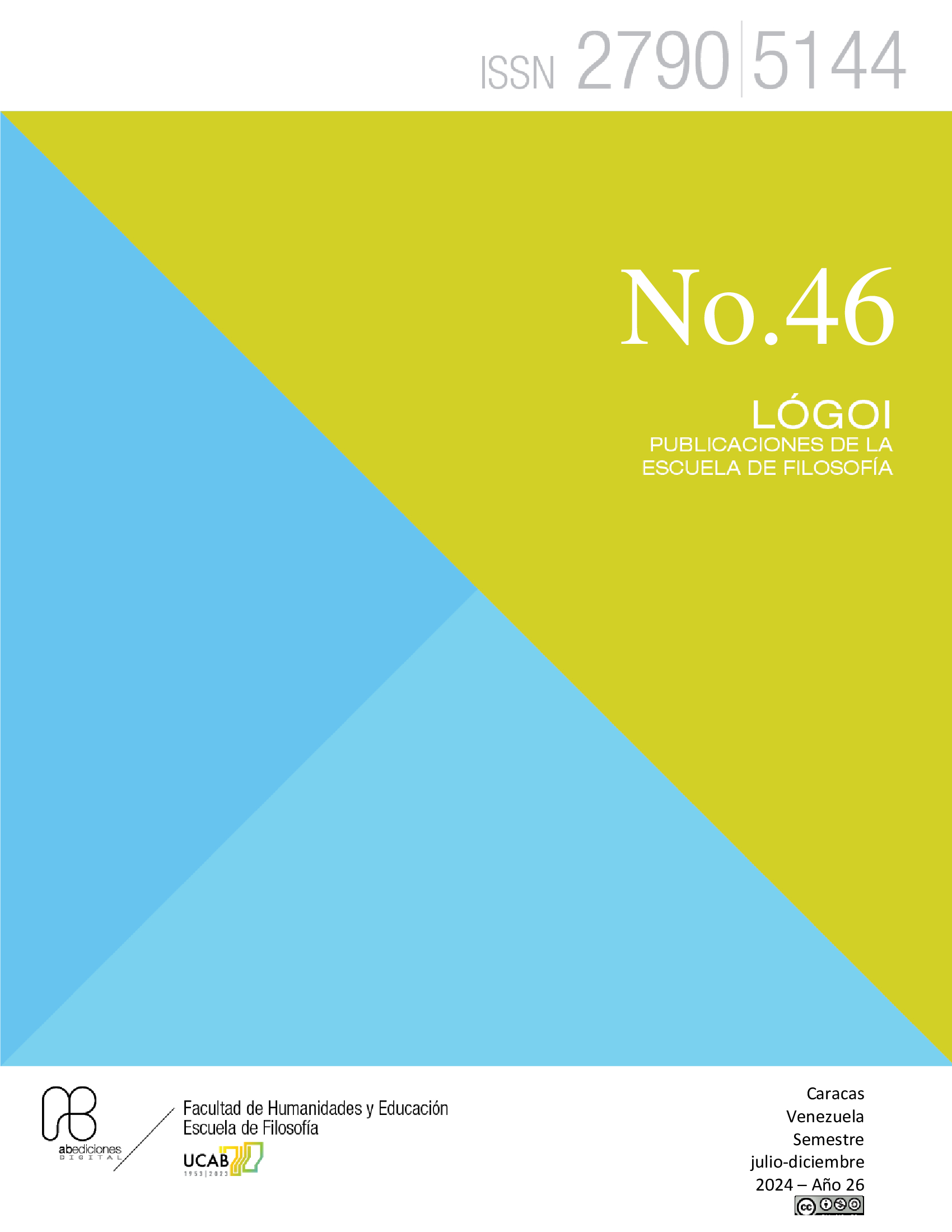Gender as style: phenomenology of sexual difference and gender performativity
DOI:
https://doi.org/10.62876/lr.vi46.6679Keywords:
institution, type, Beauvoir, Heinämaa, genealogyAbstract
This paper explores the phenomenological approach to sexual difference in Sara Heinämaa's (2003) interpretation of Simone de Beauvoir's work, whose main thesis consists in understanding sexual difference as a difference of style, a notion of Husserlian phenomenology taken up by Merleau-Ponty, which in this context refers to a shared way of relating to things and the world. Despite the richness of this approach, certain aspects related to the origin and reproduction of this style are not explicitly explored. This can be remedied, on the one hand, by attending to the difference between styles and types; and on the other, by recovering the close link between style and institution in Merleau-Ponty's work. This implies bringing our understanding of gender closer to a theory of performativity, understanding gender as instituted style.
Downloads
References
-Alcoff, L. “Phenomenology, Post-structuralism, and Feminist Theory on the Concept of Experience”, en L. Fisher and L. Embree (eds.), Feminist Phenomenology, (New York: Springer, 2000), 39-56
-Arruzza, C. “Gender as social temporality: Butler (and Marx)” (2015) en Historical Materialism 23.1; traducción al español por Alondra Castillo en Posiciones, revista de debate estratégico, (2017), 28–52
-Austin, J.L. How to do things with words, (Oxford: University Press, 1962).
-Beauvoir, S. El Segundo Sexo (Madrid: Ediciones Cátedra, 2005).
.
-Butler, J. “Performative acts and gender constitution: an essay in phenomenology and feminist theory” en Theatre Journal, vol. 40, no. 4, (1988), 519-531.
Butler, J. Gender trouble, (New York: Routledge, 2006).
-Heinämaa, S. Toward a phenomenology of sexual difference. Husserl, Merleau-Ponty, Beauvoir (New York: Rowman & Littlefield, 2003).
-Heinämaa, S. “A phenomenology of sexual difference: Types, style and persons” en Charlotte Witt Feminist Metaohysics, (New York: Springer, 2011), 131-155.
-Heinämaa, S. “Sex, gender and embodiment” en Zahavi (ed.) Handbook in contemporary phenomenology, (Oxford: Oxford university press, 2012), 216-242.
- Heinämaa, S. “Beauvoir and Husserl: An unorthodox approach to The Second Sex”. In S. M. Mussett, & W. S. Wilkerson (Eds.), Beauvoir and Western Thought from Plato to Butler (Helsinki: SUNY Press. 2012), 125-149.
-Husserl, E. Ideas Pertaining to a Pure Phenomenology and to a Phenomenological Philosophy. Second Book. Studies in the Phenomenology of Constitution. Trans. Richard Rojcewicz and André Schuwer. (Dordrecht/Boston/ London: Kluwer, 1989)
-Husserl, E. Hua IX Phänomenologische Psychologie. Vorlesungen Sommersemester. 1925. Edited by Walter Biemel. (The Hague: Martinus Nijhoff, 1968).
-Husserl, E. & Landgrebe, EU Erfahrung und urteil. untersuchungen zur genealogie der logic, academia / (Praha: verlagsbuchhandlung prag, 1939).
-Lohmar, D. “Husserl’s type and Kant’s schemata” en Donn Welton (ed) The new Husserl. A critical reader, (Bloomington: Indiana University Press, 2003), 93-124
-Meacham, D. “What goes without saying: Husserl’s concept of style” en Research in Phenomenology 43, (2013), 3-26.
-Merleau-Ponty, M. Fenomenología de la percepción, (Madrid: Planeta Agostini, 1993).
-Merleau-Ponty, M. Signes. (Paris: Gallimard, 1960).
-Merleau-Ponty, M. Husserl at the limits of phenomenology. (Evanston: Northwestern University Press, 2002).
-Schutz, A. “Type and Eidos in Husserl’s late philosophy, Philosophy and Phenomenological Research, Vol. 20, No. 2, (1959) 147-165.
-Stoller, S. “Expressivity and performativity: Merleau-Ponty and Butler” en Continental Philosophy Revue (2010) 43:97–110
-Vecino, C. “La noción de estilo en la fenomenología de E. Husserl” en Katz, A. (ed.), Husserl, Quito: Editorial de la Facultad de Ciencias Sociales y Humanas de la Universidad Central del Ecuador y Filosófica (Fundación de estudios Filosóficos, Políticos y Culturales). (2024) (En prensa).
-Wehrle, M. “Bodies (that) matter. The role of habit formation for identity” in Phenomenology and the Cognitive Sciences 20: (2021) 365-386.
Published
How to Cite
Issue
Section
License
Copyright (c) 2024 María Vecino

This work is licensed under a Creative Commons Attribution-NonCommercial-ShareAlike 4.0 International License.










.png)











